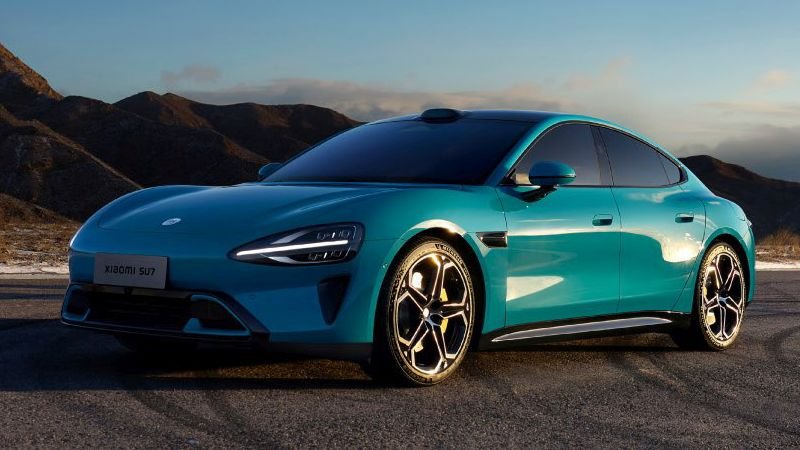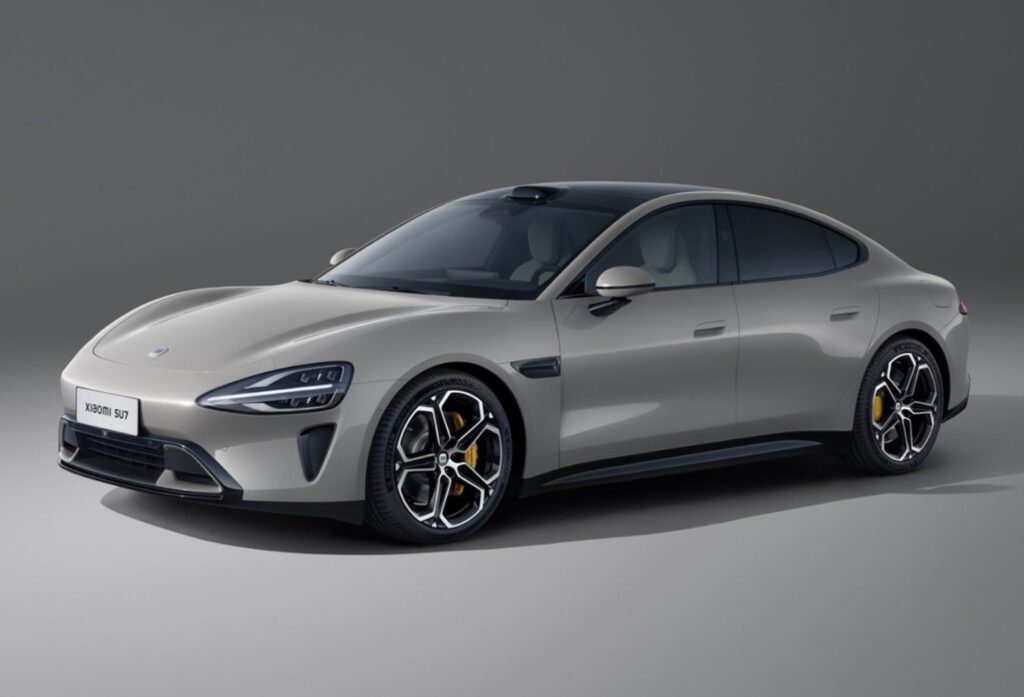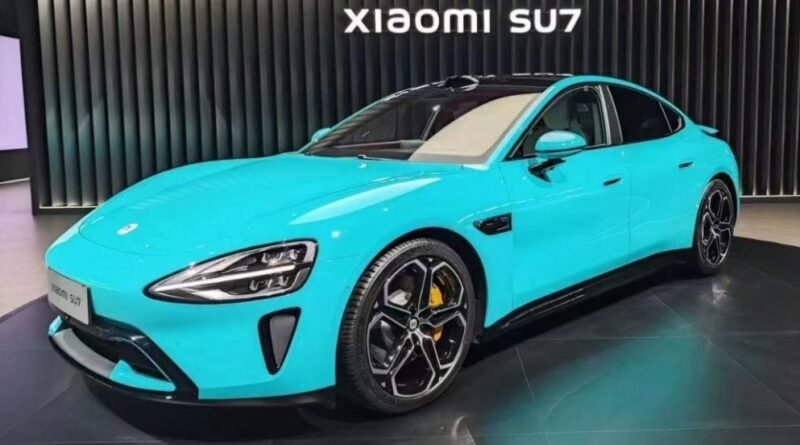Xiaomi’s CEO Lei Jun has hinted at the price of the upcoming SU7 ahead of its official launch.
There will be two versions of the SU7: one offering a driving range of up to 668km (415 miles) on a single charge, and another providing a range of up to 800km.
On Monday, Xiaomi’s CEO expressed his ambition for the company’s debut electric vehicle to be the “best-looking, easiest to drive, and smartest car” priced below CNY 500,000 (approximately Rs. 57,93,508). As the Chinese electronics giant prepares to begin accepting orders this week, it will officially unveil the price range for the vehicle, named the SU7, with “SU” representing Speed Ultra, on Thursday evening.

CEO Lei Jun’s remarks, shared on his official Weibo account, mark the first instance where the upper limit of the price range has been confirmed by the company. Anticipation surrounding the SU7 has been steadily increasing since Xiaomi revealed the vehicle in December, along with its aspiration to rank among the world’s top five automakers. Lei has highlighted its technological capabilities, claiming acceleration performance surpassing that of Tesla cars and Porsche’s EVs.
On Monday, Xiaomi’s stores in China started showcasing the car, drawing interest from potential buyers and automotive enthusiasts eager to examine the “ocean blue” variant up close. Concurrently, the company released its “Xiaomi Car” app on Chinese app stores.
The SU7 will be available in two versions: one boasting a driving range of up to 668km (415 miles) on a single charge, and another with a range of up to 800km. For comparison, Tesla’s Model S offers a range of up to 650km.

In response to slowing smartphone demand, China’s fifth-largest smartphone manufacturer has been exploring opportunities in the electric vehicle (EV) market, a strategy initially revealed in 2021. Other Chinese tech firms, such as telecom giant Huawei and search engine company Baidu, have also forged partnerships with automakers to venture into EV development.
Xiaomi has committed to investing $10 billion (approximately Rs. 83,500 crore) in the automotive sector over the span of a decade. It stands out as one of the few new entrants in China’s electric vehicle (EV) market to secure approval from authorities. These authorities have been cautious about exacerbating the supply surplus.
Its vehicles are manufactured by a subsidiary of the state-owned automaker BAIC Group at a Beijing facility capable of producing up to 200,000 vehicles annually.

